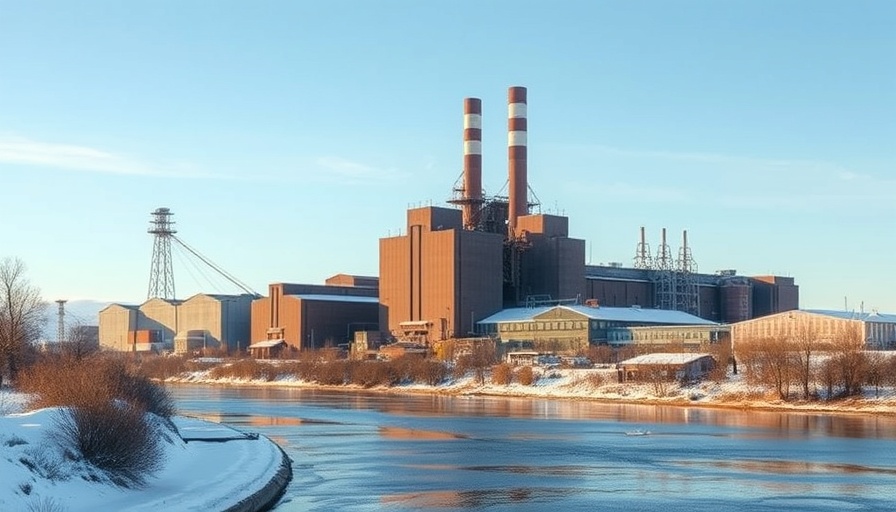
Resurrecting Espanola's Economic Spirit: The Bio-Hub Vision
In a refreshing turn for the town of Espanola, the BMI Group is eyeing to transform the idled pulp and paper mill into a vibrant bio-hub. This initiative, led by CEO Paul Veldman, represents not just a business venture but a significant boost for a community recovering from the 450 jobs lost with the mill's closure in 2023.
With the landscape of pulp and paper mills changing dramatically across Canada and North America, BMI is on a mission to innovate in the forestry sector by repurposing old facilities into multi-functional hubs. Their foresight sees the Espanola mill not only as a physical space but as a beacon of potential for alternative fuels, a field gaining traction due to rising environmental concerns.
Leveraging the Local Economy to Fuel Growth
The plan for the Espanola site includes not just the revival of the mill's physical structure but also aims to engage with local economies, focusing on innovative technology providers that can share infrastructure. This collaborative approach is set to attract over 20 tenants who can coexist in this bio-fuel production landscape, thus revitalizing job opportunities in the region.
Highlighting the intrinsic advantages of the location, Veldman points out that Espanola is strategically positioned near Sudbury, an economic powerhouse in mining with vast wood resources. The presence of rail and highway access enhances the viability of operations, making this an appealing opportunity for both investors and residents alike.
Community Support: A Welcome Change
Mayor Doug Gervais' visible optimism offers a microcosm of community sentiment. As Gervais remarked, the arrival of an entity like BMI is a glimmer of hope for the approximately 5,000 residents who have watched the mill's decline with concerns for the future of their town. Local engagement in the revitalization process will be crucial as they work toward a sustainable economic model in the wake of industrial changes.
Alternative Fuels: A Growing Sector
The shift toward alternative fuels is not merely a trend; it reflects a broader global movement aimed at reducing reliance on fossil fuels. Companies like Char Technologies, already aligned with BMI's vision, are producing bio-coal for the steel industry using scrap wood, indicating a tangible pathway toward sustainable practices. This synergy presents potential both for environmental benefits and economic rejuvenation.
With the focus on biofuels and innovations in wood fiber technology, BMI is positioning itself at the forefront of a burgeoning industry, creating jobs while responding to the global call for green initiatives.
Looking Ahead: The Future of Espanola
The Espanola bio-hub project reflects a deeper narrative of resilience and adaptation in the face of economic adversity. As BMI Group works to finalize its acquisition, the community’s hope hangs on the promise of new industry that honors the past while paving the way for modern technological advancements.
With a carefully crafted vision for the site, the potential benefits extend beyond mere economic rejuvenation. There lies a chance to redefine how communities interact with their natural resources, serving as an example for other regions confronting similar challenges.
Making Local Innovations Count
As the region contemplates the transformation of old industrial sites like the Espanola mill, local stakeholders are encouraged to champion these initiatives. Each conversation, collaboration, and investment can contribute to building a robust economic future that embraces innovation.
As Veldman asserts, putting the wood back to work is not only a slogan but a commitment to the ljudi (people) of Espanola—a blend of community spirit rekindled through sustainable practices and new economic models.
 Add Row
Add Row  Add
Add 




 Add Row
Add Row  Add
Add 

Write A Comment